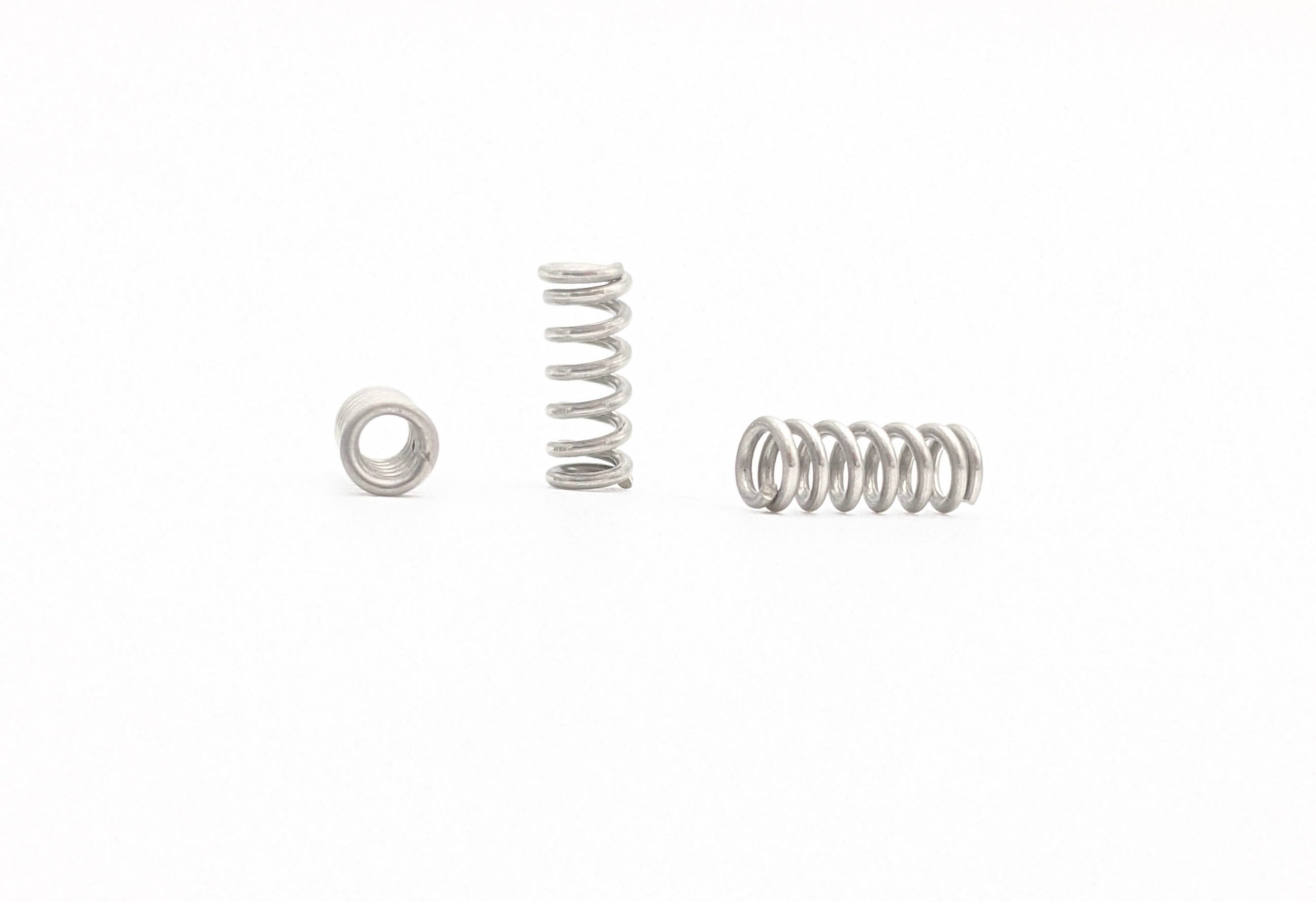Get unique, complex parts easily. No matter your requirements, Chaoyi Spring creates hard-to-produce coil springs and wire forms.
Let us help you create the custom wire form you need, from S-hooks and J-hooks to utility hooks and more.
We work closely with customers across a wide range of industries, helping them design and manufacture made-to-order parts.
Why choose Chaoyi Spring? We prioritize customer-focused collaboration, modern equipment and the latest technology to make your parts per print.
Find the information and guidance you need, from measuring a spring to learning about materials, placing an order and much more.
When it comes to garage door springs, you've got two main choices: tension springs and torsion springs. Both do the same job - helping lift and balance your heavy door


When it comes to garage door springs, you've got two main choices: tension springs and torsion springs. Both do the same job - helping lift and balance your heavy door - but they work differently. Deciding which one is best for your garage hinges on factors like your door's size, the space above your door, and your budget. Let's break down the pros and cons of each type to help you make the right decision.

Tension springs are those long, skinny springs that you see running along the top of your garage door tracks. They work by storing energy as the door is opened and releasing that energy to help close the door. Tension springs are usually found on older garage doors, and they can be a bit more affordable than torsion springs.
However, tension springs can also be more dangerous to work with. They're under high tension, so if one breaks, it can snap with significant force. This makes it especially important to have a professional install and maintain them. Plus, they need to be adjusted regularly to keep your door operating smoothly. If you're handy with tools, you can adjust them yourself, but it's not always easy and you need to know what you're doing.
Torsion springs are those thicker, coiled springs located above your garage door, usually attached to a shaft. They store energy by twisting, providing a smooth, powerful lift. Torsion springs are considered safer than tension springs because they're less likely to snap unexpectedly. They also require less frequent adjustments, making them a more hands-off option. However, torsion springs can be more expensive to install and replace than tension springs, and they might require more overhead clearance.
The best choice for your garage door ultimately depends on your needs and preferences. Here's a quick comparison of tension springs and torsion springs:
Tension Springs
Torsion Springs
If you're on a tight budget, you might consider tension springs. But if you're looking for a safer, more reliable option, torsion springs are the way to go. Remember, safety is paramount, and it's always a good idea to consult with a professional garage door technician before making any decisions about your garage door springs.
Garage door springs are under tremendous pressure, and even a minor mistake during installation or repair can be dangerous. So, if you're not comfortable working with these springs, it's always best to call a professional. They have the experience and expertise to ensure your garage door is properly balanced and operates safely.
So, tension spring or torsion spring? There's no one-size-fits-all answer. Your garage door size, the amount of space above your door, and your budget will influence the decision. If you're uncertain, don't hesitate to seek professional advice. After all, a safe and well-functioning garage door adds value and peace of mind to your home.
Whether you choose tension springs or torsion springs, remember that regular maintenance is crucial. This includes checking the springs for wear and tear, lubricating moving parts, and ensuring the door is balanced. With proper care, your garage door springs can keep working smoothly for years to come.
Browse some of the custom wire forms and springs that we manufacture. Don’t see what you need? We specialize in made-to-order products that meet your application requirements.
Visit Our GalleryNeed a custom wire form or coil spring? We make it work. Fill out the contact form and a representative will respond within 1 business day. If you have a PDF or CAD file, you can submit to request a quote.